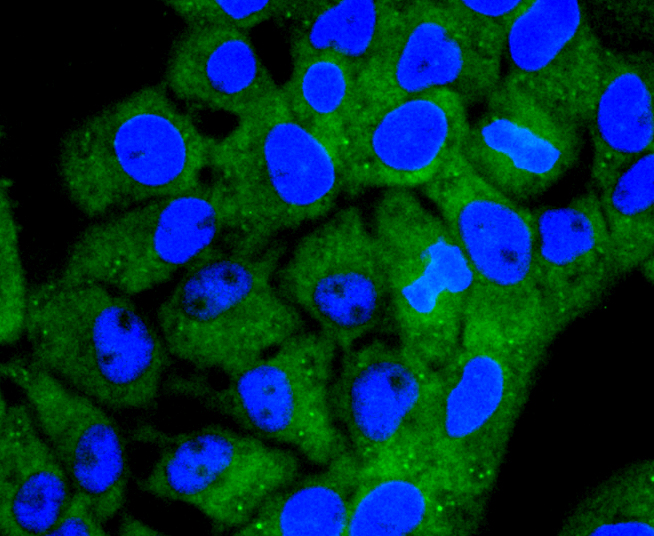Product Detail
Product NameAcetyl CoA synthetase Rabbit mAb
Clone No.JF0917
Host SpeciesRecombinant Rabbit
Clonality Monoclonal
PurificationProA affinity purified
ApplicationsWB, ICC/IF
Species ReactivityHu, Ms, Rt
Immunogen Descrecombinant protein
ConjugateUnconjugated
Other NamesACAS2 antibody AceCS antibody Acetate CoA ligase antibody Acetate thiokinase antibody Acetate--CoA ligase antibody Acetyl CoA synthetase antibody Acetyl Coenzyme A synthetase 2 (ADP forming) antibody Acetyl coenzyme A synthetase cytoplasmic antibody Acetyl-CoA synthetase antibody Acetyl-coenzyme A synthetase antibody ACS antibody ACSA antibody ACSA_HUMAN antibody ACSS2 antibody Acyl activating enzyme antibody Acyl CoA synthetase short chain family member 2 antibody Acyl-activating enzyme antibody Acyl-CoA synthetase short-chain family member 2 antibody Cytoplasmic acetyl coenzyme A synthetase antibody cytoplasmic antibody MYH7B antibody
Accession NoSwiss-Prot#:Q9NR19
Uniprot
Q9NR19
Gene ID
55902;
Calculated MW79 kDa
Formulation1*TBS (pH7.4), 1%BSA, 40%Glycerol. Preservative: 0.05% Sodium Azide.
StorageStore at -20˚C
Application Details
WB: 1:1,000
ICC: 1:50-1:200
ICC staining Acetyl CoA synthetase in RH-35 cells (green). The nuclear counter stain is DAPI (blue). Cells were fixed in paraformaldehyde, permeabilised with 0.25% Triton X100/PBS.
ICC staining Acetyl CoA synthetase in SW480 cells (green). The nuclear counter stain is DAPI (blue). Cells were fixed in paraformaldehyde, permeabilised with 0.25% Triton X100/PBS.
ACSS2 (acyl-CoA synthetase short-chain family member 2), also known as ACAS2, ACS, ACSA or AceCS, is a 701 amino acid cytoplasmic protein that belongs to the ATP-dependent AMP-binding enzyme family. Existing as a monomer, ACSS2 functions to catalyze the ATP-dependent activation of acetate, a reaction that yields acetyl-CoA for use in energy generation and lipid synthesis. ACSS2 expression, which is highest in liver and kidney tissue, is regulated by the presence of unsaturated fatty acids and sterol regulatory element-binding proteins (SREBPs). Human ACSS2 exists as two alternatively spliced isoforms and shares 93% sequence identity with its mouse counterpart, suggesting a conserved role between species.
If you have published an article using product 49335, please notify us so that we can cite your literature.




 Yes
Yes



